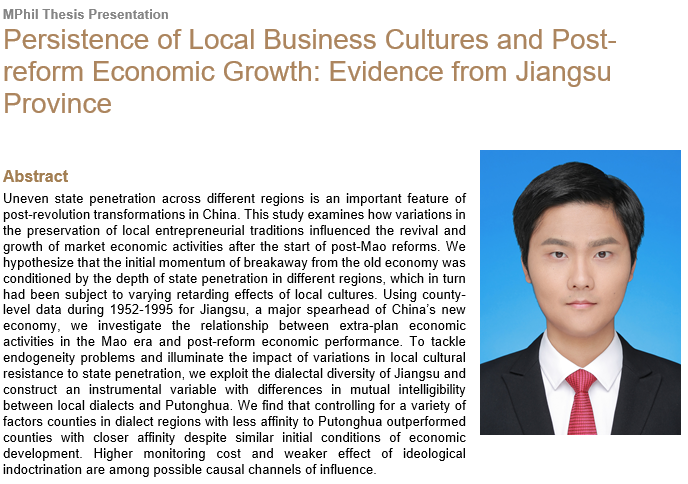Abstract
Uneven state penetration across different regions is an important feature of post-revolution transformations in China. This study examines how variations in the preservation of local entrepreneurial traditions influenced the revival and growth of market economic activities after the start of post-Mao reforms. We hypothesize that the initial momentum of breakaway from the old economy was conditioned by the depth of state penetration in different regions, which in turn had been subject to varying retarding effects of local cultures. Using county-level data during 1952-1995 for Jiangsu, a major spearhead of China’s new economy, we investigate the relationship between extra-plan economic activities in the Mao era and post-reform economic performance. To tackle endogeneity problems and illuminate the impact of variations in local cultural resistance to state penetration, we exploit the dialectal diversity of Jiangsu and construct an instrumental variable with differences in mutual intelligibility between local dialects and Putonghua. We find that controlling for a variety of factors counties in dialect regions with less affinity to Putonghua outperformed counties with closer affinity despite similar initial conditions of economic development. Higher monitoring cost and weaker effect of ideological indoctrination are among possible causal channels of influence.

